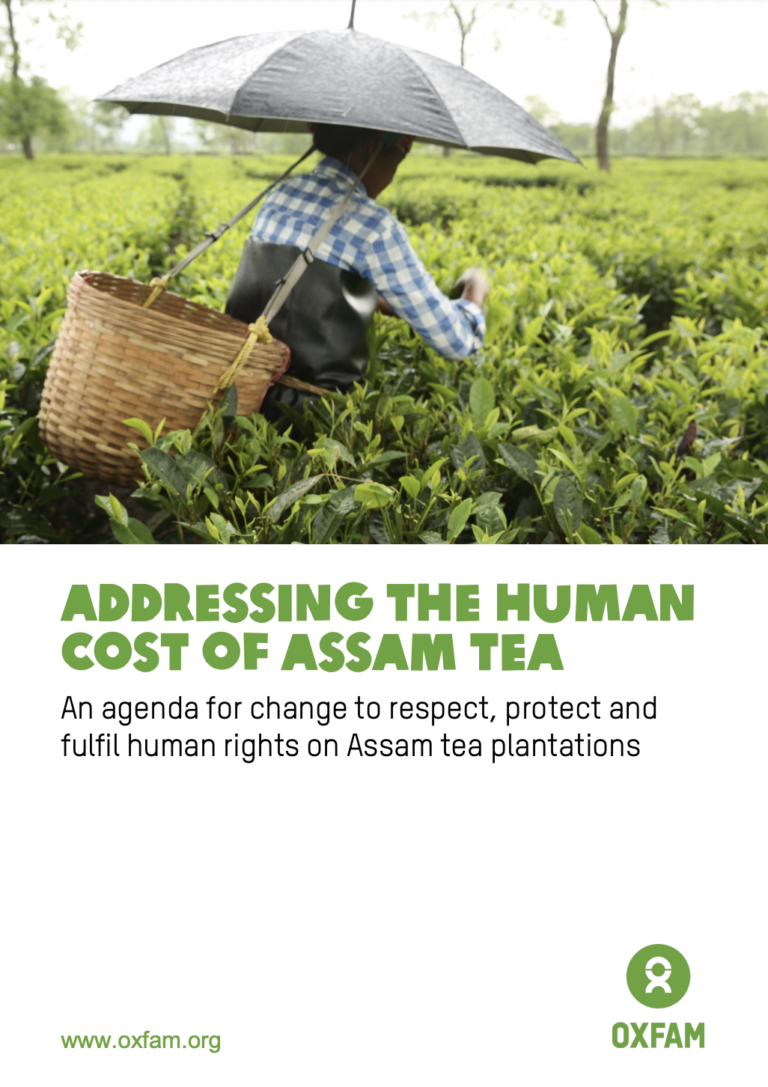Workers on tea plantations in the Assam region of India are systematically denied their rights to a living wage and decent working and living conditions. The fact that they are unable to meet their basic living costs is starkly illustrated by our finding that 50% of the households that researchers visited on behalf of Oxfam owned ‘below poverty line’ ration cards issued by the Government of Assam, making them eligible for rations of 5kg of rice per month per family member. Tea workers also struggle to get timely and good quality healthcare, access clean drinking water, and provide their children with a decent education.
The root causes are deeply embedded in the history and evolution of the Indian tea industry, which has led to a pervasive inequality of power between the women and men that produce tea and the brands and supermarkets that sell it to consumers.
For every kilogram of packaged Assam tea that is sold, tea brands and supermarkets take a sizable cut – up to 95% in some cases – while a marginal proportion – less than 5% – remains on tea estates to pay workers. These inequalities in how the share of the end consumer price of tea is distributed contribute to poverty and suffering for the women and men on Assam tea estates, while driving a sustainability crisis for the wider tea industry in parts of India.
Women bear the heaviest burden of systemic inequality, as they are concentrated in the lowest paid plucking roles and also shoulder most of the unpaid domestic care work. Meanwhile, plantation owners claim that laws making them responsible for housing, healthcare and education of workers and their dependents are challenging to implement – and therefore are not effectively executed.
Oxfam’s new research shows that the solutions lie in a fairer sharing of the end consumer price of tea, stronger gender policies, and a review of plantation labour laws to ensure that women and men in Assam can lead dignified lives.

